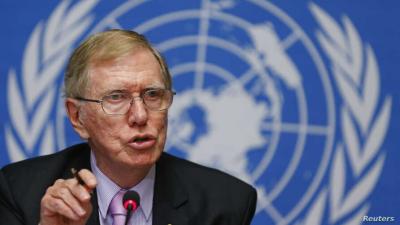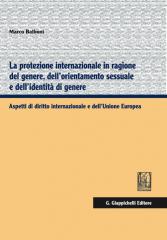Subject: STATEMENT BY THE HONOURABLE MICHAEL KIRBY, FORMER CHAIR OF THE UN COI on NORTH KOREA (DPRK)
1. The imposition of a ban on the delivery of leaflets to DPRK and the compatibility of such a ban with universal human rights belonging to the citizens of ROK and DPRK raise political questions that need to be resolved, inter-alia, in the National Assembly of Korea. Depending on the language of the law, any such provision might also raise the possibility of breach of universal human rights law or local constitutional or other law. The COI on DPRK repeatedly requested access to DPRK and its citizens. This was repeatedly denied. In these circumstances, the view of the COI was that other means should be taken to ensure that its work was drawn to the notice of the people of DPRK so that they were made aware of the initiatives that the COI and the United Nations had taken to respond to the .’’. systematic, widespread and gross human rights violations [which] have been and are being committed by the DPRK, its institutions and officials.’’. DPRK does not have a right to prevent the people of that country from being informed of the conclusions of the COI and the actions taken by the United Nations and the international community to respond to these findings, given their gravity.
2. The killing of a ROK official appears to have been an international crime for which DPRK and its officials are answerable. The reported exculpations should be investigated by an independent body so that any public officials who have acted contrary to law are rendered accountable in a transparent process. Such process should also investigate the allegation that the deceased had sought asylum in DPRK because of gambling debts. Although more than 30,000 Korean people had sought protection in ROK to the time of the COI report, the number from ROK seeking asylum in DPRK (if any) was negligible . The circumstances of the killing of the ROK official make it appear extremely unlikely that he was seeking protection from DPRK. If that is seriously alleged by DPRK or anyone else, they should produce convincing evidence to justify the claim. In default of the establishment of an intergovernmental commission of inquiry to investigate the killing, it is legitimate for national institutions, media organs and civil society to conduct a formal investigation.
3. As the Special Rapporteur on DPRK has said, it is unfortunate that the Government of ROK has not participated affirmatively in the annual resolution on human rights in DPRK in 2019 and 2020. The COI on DPRK has made clear findings of demonstrated crimes against humanity on the part of DPRK and its officials. When such crimes were first recognised by the United Nations in 1948, there was a commitment that the international community would never again ignore or fail to respond to such serious crimes as it had done in the case of the crimes of Nazi Germany and others in the 1930s-40s. This is why the repeated resolutions of the General Assembly on the human rights violations of DPRK must be supported and the leaders and officials of that country must be called out. Following the report of the COI, their crimes remain on the agenda of the international community.
4. The likely direction of policy on human rights in DPRK on the part of the incoming Biden Administration in the United States of America is, at this stage, substantially a matter of speculation and guesswork. It is not appropriate that I participate in such activity. There will be other participants in the webinar who are capable of doing so, who are themselves citizens of the United States of America, and who are familiar with the announced officials of the Biden Administration, proposed for confirmation.
5. On the basis of the many grave findings of crimes against humanity and other human rights crimes on the part of DPRK, found in the COI report, I am of the view that the creation by the National Assembly of Korea of an effective, comprehensive and properly funded Human Rights Act is both necessary and urgent. The history of the Korean people demands thorough investigation of the past and present human rights abuses in DPRK. Future generations will likely judge most severely the failure of the current generation of Koreans to undertake such investigations and to respond as effectively as is possible. Self-evidently, the egregious crimes against humanity will not disappear because the present generation of Koreans have neglected to follow up the report of the COI. Although this report was a duty of the international community, it remains primarily a high moral obligation on the part of the Korean people.
6. See the answer to paragraph 1. DPRK does not have a right to prevent the people of the entire Korean Peninsula receiving accurate and up-to-date knowledge about the follow-up to the crimes against humanity and other human rights violations found by the United Nations COI. Because DPRK will not permit the COI, Special Rapporteur, High Commissioner for Human Rights and other high officials of the United Nations to enter its territory and investigate, it cannot be heard to complain when broadcasting media use other sources to report on the human rights situation in North Korea. The Korean people are amongst the most inventive in the world in the development of digital information systems. This technology must be made available to inform all Koreans about the state of human rights in DPRK. If DPRK seeks to suppress access on the part of its citizens to the COI report and other United Nations findings, it cannot complain when external broadcasters seek to fulfil the natural desire of the Korean people to know what is now happening in DPRK.
7 The COI on DPRK concluded that the People's Republic of China was likely in breach of obligations that it had accepted under the Refugees Convention and Protocol of 1951. It is a breach of that Convention to return a person who has a well-founded fear of persecution to the place where such persecution may well occur. [COI report, para 90 (a) . The COI called on PRC to respect the principle of non-- refoulement and to abstain from forcibly repatriating any persons to the DPRK unless the treatment there, as verified by international human rights monitors, markedly improves. No such improvement can be found to have occurred.
8. As to whether the incoming Biden Administration in the United States of America will restore or increase sanctions, this also is a matter of speculation upon which I am not competent, nor justified, in adding my speculation or guesswork. Other participants in the webinar will be better able to do this. Unfortunately, the only language that the leadership in DPRK appears to understand is the language of UN Security Council sanctions. Subject to available humanitarian exceptions, such sanctions should be maintained until there is clear and convincing evidence of significant improvement in the human rights situation in DPRK, as reported by the United Nations COI in February 2014.












